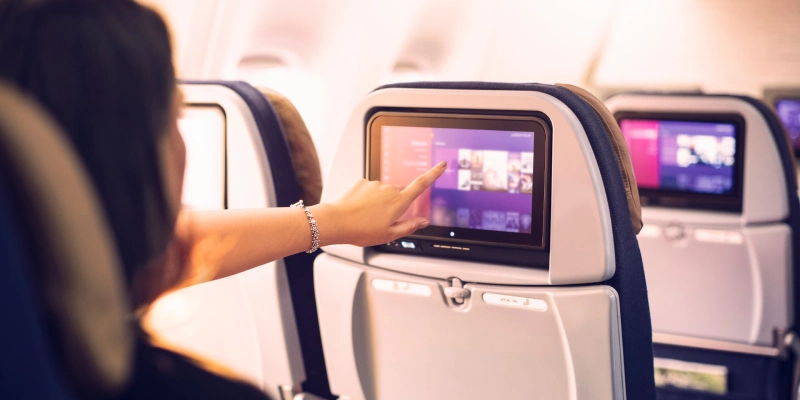Eight out of ten air passengers say their travel habits will change as a result of Covid-19, and 41% plan to travel less frequently by any means of transport, according to a study by Inmarsat, a UK-based company that provides Mobile Satellite Services solutions.
See also: Which airlines are on the verge of “bankruptcy” because the COVID-19 pandemic?
The majority of passengers (60%) are satisfied with the aviation industry’s response to the challenges of the global pandemic and many already feel so confident (47%) that they say they would be willing to fly again in the next six months.
Only one-third (34%) of passengers surveyed have taken a commercial flight since the pandemic began, and this appears to have led to a change in attitudes towards flying, EuropaPress reported.
See also: Low-cost airlines have adapted better the Covid-19 crisis.
Four out of ten passengers (41%) expect to travel less by any means and a third (31%) plan to fly less. This feeling is even stronger among Asian passengers, with 58% in India and 55% in South Korea planning to travel less in the future.
The study reveals significant variation around the world in passenger confidence in flying after the pandemic.
Thus Hungarian and British travelers are the most confident, with 26% and 16% respectively saying they would take a flight today. Asian passengers are less so; more than a third (35%) of South Koreans expect not to fly again until the Covid-19 disappears.
Confidence in travel correlates broadly with levels of public concern about Covid-19. For example, South Koreans and Singaporeans are twice as likely to describe their behavior regarding the virus as “very cautious” toward the British.
Less Comfortable in the Baths
Currently, passengers are more afraid of catching the virus abroad than on the plane. In fact, many think they are at greater risk for health in other environments, such as the gym and public transportation.
While passengers feel more confident about passport control, security and communication with the cabin crew, they are less comfortable visiting the restroom during the flight and being around others.
The study indicates that solutions that minimize contact points and reduce interactions would be the most advanced to address weaknesses, such as in-flight contactless payments (83%) and staggered security queues (84%).
When it comes to ensuring personal safety, passengers have ignored the automatic 14-day quarantine. Instead, results show a desire for a consistent set of measures to make travel safer, such as mandatory mask wearing or a 48-hour pre-trip test.
Thus, half of the passengers (44%) say that reputation is now a more important factor in choosing an airline than it was before the pandemic.
Research highlights that improving the in-flight experience is one way to achieve this. From extra legroom (43 percent) to free baggage (39 percent), value-added services are increasingly important for returning passengers.
Digital solutions are becoming essential for a pleasant in-flight experience, and nearly four in ten (39%) agree that in-flight WiFi is more important today than ever before. This is more significant for Indian and Brazilian passengers.
Destination status alerts, real-time baggage tracking, and onboard immigration pre-clearance, all enabled by cabin connectivity, are among the main aspects of travel that passengers most value and want to maintain after the pandemic.
Related Topics
Copa Airlines Expands Capacity in Venezuela: 17 Weekly Frequencies Between Panama and Caracas Starting in March
Rutaca Airlines Resumes Flights Between Caracas and Punta Cana Starting in March
LATAM Suspends Lima-Havana Flights Due to Fuel Supply Crisis in Cuba
LATAM Recognized for Third Time by APEX as Airline with “Best Inflight Entertainment in South America”
Líder en noticias de aviación




